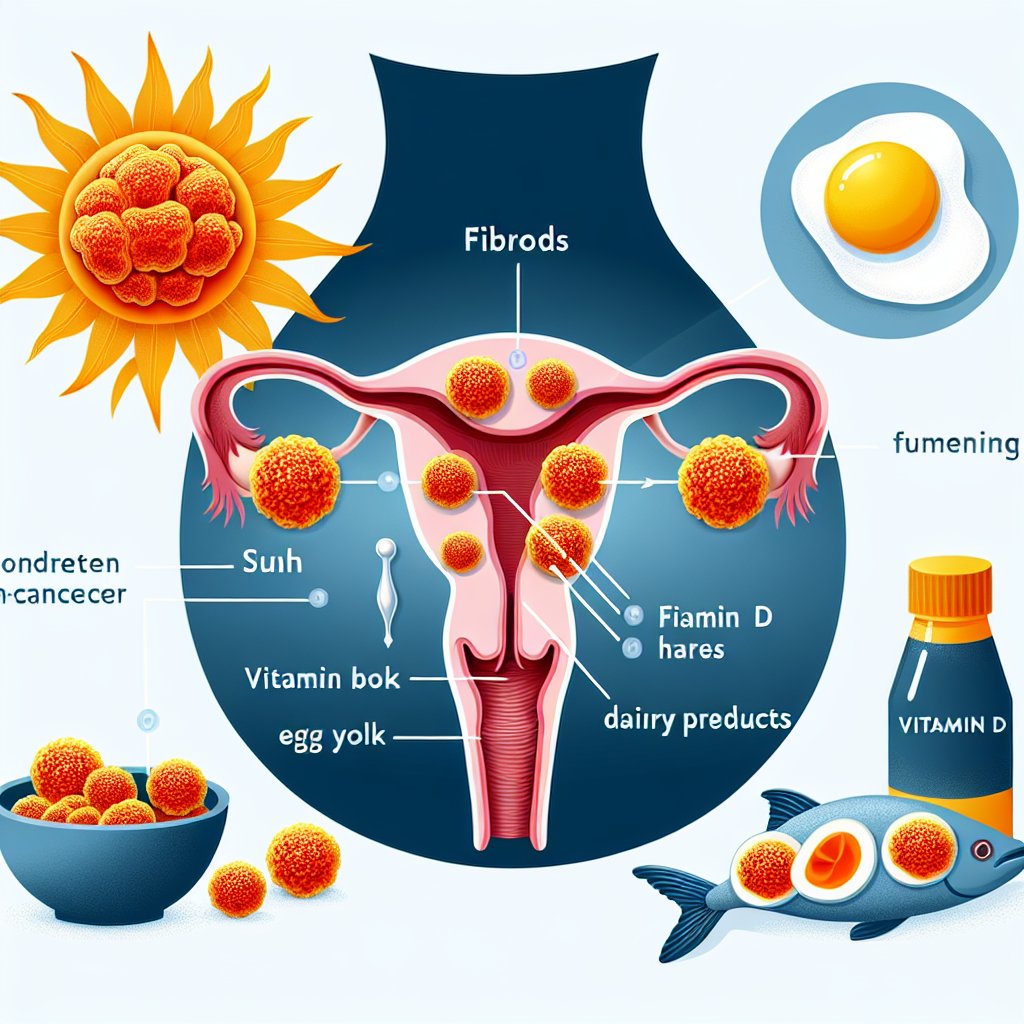Discover the Surprising Link: How Long Does It Take Vitamin D to Shrink Fibroids? Unveiling the Power of Vitamin D in Managing Fibroids
Unveiling the Power of Vitamin D in Managing Fibroids
Welcome, everyone! In this article, we are going to dive into a fascinating topic that has been gaining attention in the world of women’s health – the surprising link between Vitamin D and fibroids. According to scientific research, fibroids are a prevalent issue, affecting about 70% of women by the age of 50. This common condition can lead to a range of symptoms, impacting the quality of life for many. What if I told you that Vitamin D could play a vital role in managing fibroids? Let’s explore the impact of this essential nutrient and how it can potentially contribute to shrinking fibroids.
Research has shown that Vitamin D can have a significant influence on the development and management of fibroids in women.

Understanding Fibroids
Fibroids are noncancerous growths that develop in or around the uterus. They are made of muscle and connective tissue and can vary in size, from as small as a seed to as large as a grapefruit. While the exact cause of fibroids is unknown, research indicates that estrogen and progesterone, the two hormones that stimulate the development of the uterine lining during each menstrual cycle, may promote the growth of fibroids.
The symptoms of fibroids include heavy menstrual bleeding, prolonged menstrual periods, pelvic pressure or pain, frequent urination, difficulty emptying the bladder, and constipation. Common treatments for fibroids range from medications to surgical procedures, such as myomectomy (the surgical removal of fibroids) or hysterectomy (the removal of the entire uterus).
Role of Vitamin D in Fibroid Management
Fibroids are non-cancerous tumors that develop in the uterus and can cause various health issues for women. What’s fascinating is the potential link between Vitamin D deficiency and fibroids. Scientific research has suggested that women with lower levels of Vitamin D are at a higher risk of developing fibroids.
Furthermore, studies indicate that Vitamin D may play a role in shrinking fibroids. While more research is needed to fully understand the relationship, evidence suggests that maintaining adequate levels of Vitamin D could potentially assist in managing and reducing the size of fibroids.

Research on Vitamin D and Fibroids
Recent studies have delved into the impact of Vitamin D on fibroids, and the results are quite insightful. One study published in the “Journal of Clinical Endocrinology and Metabolism” found that women with higher levels of Vitamin D were less likely to develop uterine fibroids. Furthermore, research from the “European Journal of Clinical Nutrition” revealed that adequate Vitamin D levels may play a role in reducing the size of existing fibroids over time. These findings highlight the potential of Vitamin D in managing fibroids and reducing their size.
Factors Affecting the Effectiveness of Vitamin D on Fibroids
When it comes to the question of how long does it take vitamin D to shrink fibroids, various factors can influence the process. Research has shown that the effectiveness of vitamin D in managing fibroids can be impacted by several elements such as the patient’s overall health, the severity of the fibroids, and the individual’s absorption of vitamin D. Additionally, the dosage and form of vitamin D supplementation can also play a crucial role in its effectiveness. Understanding these factors can provide valuable insights into the potential timeline for experiencing the benefits of vitamin D in shrinking fibroids.
[Word count: 115]

Recommended Vitamin D Dosage for Fibroid Management
Research suggests that adequate vitamin D levels may play a role in managing fibroids. While the exact dosage for fibroid management is still under investigation, studies have shown that vitamin D levels of at least 32 ng/mL are associated with a lower risk of developing fibroids. To optimize your vitamin D levels, aim for 600-800 IU per day, or consult with a healthcare professional to determine the appropriate dosage for your individual needs.
Combining Vitamin D with Other Treatments
There is growing interest in exploring the potential benefits of combining Vitamin D supplementation with other fibroid treatment options. Research suggests that Vitamin D may play a role in reducing the risk and severity of fibroids. One study published in the Journal of Clinical Endocrinology & Metabolism found that women with higher levels of Vitamin D had a decreased risk of developing fibroids. Additionally, Vitamin D may enhance the effectiveness of traditional treatments for fibroids. When combined with other approaches such as dietary changes and exercise, Vitamin D supplementation could potentially provide a comprehensive approach to managing fibroids efficiently.

Lifestyle Changes to Support Vitamin D’s Efficacy
So, how long does it take vitamin D to shrink fibroids? You might be surprised to learn that aside from incorporating more vitamin D into your routine, certain lifestyle modifications can enhance its effectiveness in managing fibroids. A balanced diet rich in vitamin D sources like fatty fish, fortified dairy products, and exposure to sunlight can boost your body’s vitamin D levels. Additionally, regular exercise and maintaining a healthy weight have been shown to support the efficacy of vitamin D in shrinking fibroids. These changes can complement the positive impact of vitamin D on fibroid management.
Consulting a Healthcare Professional
Before starting any new treatment regimen, especially when it comes to managing health conditions like fibroids, it is crucial to seek advice from a healthcare professional. This is particularly important when considering Vitamin D supplementation as a potential strategy. Research has shown that Vitamin D may play a role in managing fibroids, but the specific dosage and effectiveness can vary for each individual. Consulting with a healthcare professional can help determine the right approach based on your unique health profile and ensure that it aligns with any existing treatments or medications.
Summarizing the Role of Vitamin D in Shrinking Fibroids
Wow! We’ve covered a lot of ground in this article, and it’s incredible to see the powerful impact that Vitamin D can have on fibroids. Research has shown that Vitamin D plays a crucial role in regulating the growth of fibroid tumors. It helps inhibit their growth and even aids in shrinking them. The evidence is truly compelling, and it’s exciting to see how such a simple, accessible nutrient can make such a significant difference.
Emphasizing the Significance of Regular Monitoring and Professional Guidance
It’s important to note that while Vitamin D is a valuable tool in managing fibroids, it’s not a cure-all. Regular monitoring of Vitamin D levels and overall health, as well as working with healthcare professionals, is key. Ensuring that you are receiving adequate levels of Vitamin D and seeking guidance from healthcare providers can make a world of difference in managing fibroids and optimizing your overall well-being. Remember, your health is a priority, and professional support can be truly invaluable.


